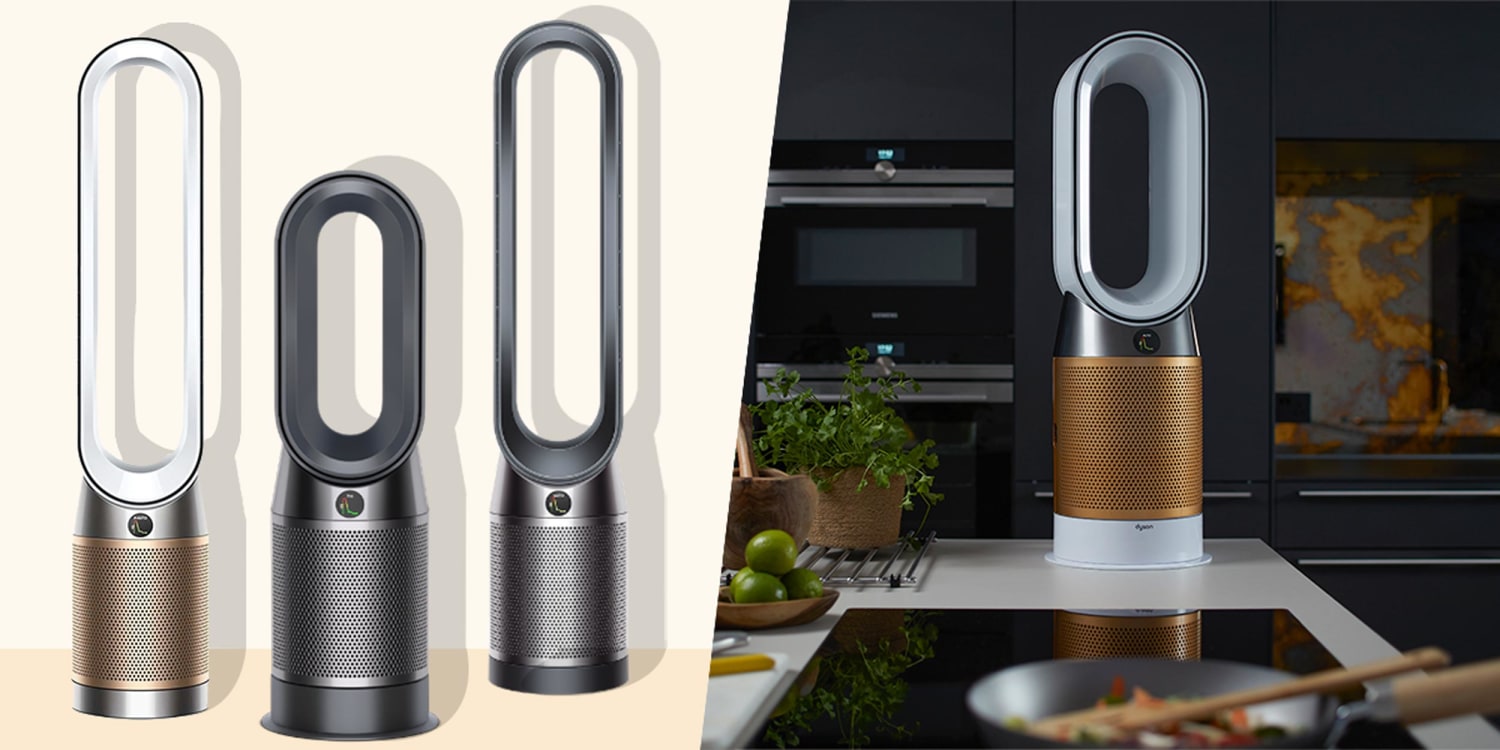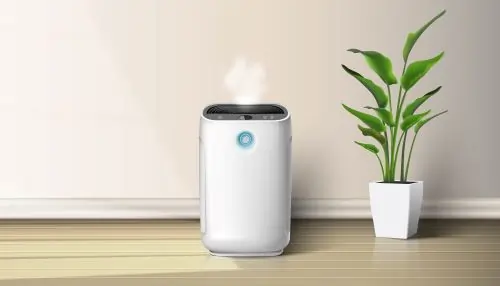Featured
Table of Contents
- – Understanding Allergies and Triggers
- – Can Air Purifiers Aid With Allergies?
- – The Science Behind Air Purifiers and Allergies
- – Are Air Purifiers Right for You? Factors to T...
- – Making the Many of Air Purifiers for Allergies
- – Beyond Air Purifiers: A Multi-Pronged Strategy...
- – Living a Breath Easier Life with Allergies

Air purifiers are often promoted as a solution, promising cleaner air and alleviation from allergy signs and symptoms. Are air purifiers genuinely worth the investment for allergic reaction victims?
Understanding Allergies and Triggers
To comprehend the role of air cleansers, let's initial delve right into allergies and their triggers:
- The Allergic Reaction: Allergies happen when your body immune system overreacts to a harmless compound, like pollen or allergen. This reaction causes the release of histamines, triggering allergy signs and symptoms like sneezing, coughing, itchy eyes, and a drippy nose.
- Typical Allergens: Indoor allergens include dust termites, pet dog dander, mold spores, pollen that wanders indoors, and even cockroach irritants. These air-borne fragments can irritate your respiratory tracts and trigger allergic reaction signs and symptoms.
Can Air Purifiers Aid With Allergies?
Air purifiers function by drawing in air, removing contaminants, and releasing cleaner air back right into the area. Here's exactly how they can potentially benefit allergic reaction victims:
- Trapping Allergens: HEPA (High-Efficiency Particulate Air) filters, a typical kind utilized in air cleansers, are extremely reliable at recording air-borne allergens like allergen, pet dog dander, and pollen. By getting rid of these triggers from the air you take a breath, air purifiers can help decrease allergy signs and symptoms.
- Improved Air Quality: Air purifiers can additionally get rid of other irritants from the air, such as smoke, dust, and unstable organic compounds (VOCs) This total renovation in air top quality can be advantageous for allergy sufferers that are delicate to these extra triggers.
The Science Behind Air Purifiers and Allergies
Researches have revealed that air purifiers can be practical in lowering allergy signs and symptoms. Here's a check out some essential research study findings:
- A 2019 review published in the journal "Current Allergic reaction and Bronchial asthma Records" ended that air purifiers with HEPA filters can be reliable in reducing allergy symptoms and enhancing lifestyle for individuals with sensitive rhinitis (hay fever)
- A 2018 research study released in the journal "Record of Allergy, Asthma & Immunology" found that using an air purifier with a HEPA filter in the bedroom dramatically lowered allergen allergen degrees and improved sleep top quality in individuals with asthma.
Nevertheless, it is very important to note that research also recommends some restrictions:
- Air Purifier Protection: Air cleansers are most effective in the space where they are put. Their effect on allergens in other parts of your home could be very little.
- Extent of Allergies: While air cleansers can help, they may not be a complete remedy for extreme allergic reactions. Medicines and other allergic reaction management approaches may still be required.
Are Air Purifiers Right for You? Factors to Take Into Consideration
Here are some vital elements to consider when making a decision if an air purifier is worth it for your allergic reactions:
- Seriousness of Allergies: If your allergies are light and well-controlled with medication, an air purifier may not be necessary. However, for those with moderate to severe allergies, an air purifier can be a valuable device in managing signs.
- Kinds of Allergens: Think about the main triggers for your allergic reactions. Air purifiers are most effective for air-borne allergens like allergen, pet dog dander, and pollen. They may not be as useful for irritants like mold and mildew that expand on surface areas.
- Way of living and Setting: If you have pets, reside in a location with high plant pollen matters, or have worries concerning interior air top quality, an air purifier can be beneficial.

Making the Many of Air Purifiers for Allergies
If you choose to spend in an air purifier for allergic reactions, below are some ideas for optimizing its efficiency:
- Pick a HEPA Filter: Look for an air purifier with a HEPA filter accredited to record particles as little as 0.3 microns.
- Right Size for the Area: Guarantee the air purifier has a Clean Air Shipment Price (CADR) that appropriates for the dimension of the room you prepare to utilize it in.
- Placement Issues: Put the air purifier in the area where you invest one of the most time, such as your room.
- Normal Filter Maintenance: Replace HEPA filters according to the producer's directions to maintain optimum efficiency.
- Integrate with Various Other Approaches: Air purifiers are not a one-size-fits-all remedy. Integrate them with various other allergy management techniques like medication, regular cleaning, and allergen-proof bed linens.
Beyond Air Purifiers: A Multi-Pronged Strategy to Allergic Reaction Monitoring

While air purifiers can be an important tool in your allergy toolbox, they are not a miracle drug (If you're looking to buy an Air Purifier then Air Cleaners Australia is the best destination.). A comprehensive approach that integrates air purification with other methods is essential to attaining long-lasting allergy alleviation. Below are some additional methods to think about:
- Medicine: Antihistamines, decongestants, and nasal corticosteroids, recommended by your medical professional, can efficiently manage allergic reaction signs and symptoms.
- Allergy Screening and Immunotherapy: Determining your certain irritants with allergic reaction screening can pave the method for immunotherapy, a therapy that aids desensitize your body immune system to allergens in time.
- Air Quality Monitoring: Routine cleaning with a HEPA-filtered hoover and allergen-specific cleaning items can substantially lower dust termites, animal dander, and various other allergens in your home.
- Managing Humidity: Mold and mildew flourishes in humid settings. Utilizing a dehumidifier can assist manage moisture degrees and avoid mold and mildew growth, an usual interior irritant.
- Way of life Adjustments: If you have hatreds plant pollen, remaining inside your home throughout optimal plant pollen periods and showering after hanging around outdoors can help reduce exposure.
- Bed linen and Surface Areas: Encasing cushions and mattresses in allergen-proof covers can significantly decrease allergen exposure. Regularly cleaning bedding in warm water helps get rid of allergens.
Living a Breath Easier Life with Allergies
Remember, handling allergic reactions is a continuous procedure. By comprehending your triggers, applying a multi-pronged approach, and possibly including an air purifier right into your approach, you can substantially lower allergic reaction signs and breathe less complicated.
Additional Considerations:
- Consulting a Physician: If your allergic reactions are severe or otherwise well-controlled with medication and way of living changes, get in touch with a specialist for tailored referrals.
- Air Quality Tracking: Consider making use of an air top quality display to track irritant degrees in your home and change your administration methods as necessary.
- Long-Term Financial investment: A good quality air purifier can be a long-lasting investment in your health and health.
By taking a proactive approach and adopting a combination of these techniques, you can produce a healthier and allergy-friendly setting, allowing you to delight in a breath less complicated life.
Table of Contents
- – Understanding Allergies and Triggers
- – Can Air Purifiers Aid With Allergies?
- – The Science Behind Air Purifiers and Allergies
- – Are Air Purifiers Right for You? Factors to T...
- – Making the Many of Air Purifiers for Allergies
- – Beyond Air Purifiers: A Multi-Pronged Strategy...
- – Living a Breath Easier Life with Allergies
Latest Posts
Comprehending the Shift: Why Roseville is Phasing Out Gas
Understanding the Transition: Why sydney is Phasing Out Gas
Some Known Incorrect Statements About Are Yeti Rambler Tumblers Built For Dishwasher Durability?
More
Latest Posts
Comprehending the Shift: Why Roseville is Phasing Out Gas
Understanding the Transition: Why sydney is Phasing Out Gas
Some Known Incorrect Statements About Are Yeti Rambler Tumblers Built For Dishwasher Durability?